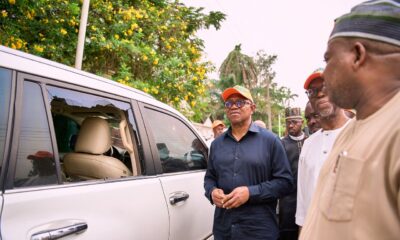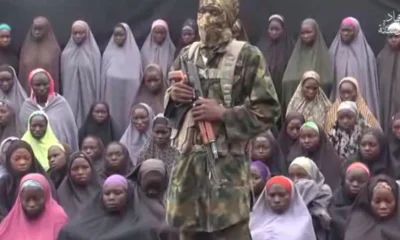Health
WHO Records 51 Cases Of New Polio Variant In Nigeria
Spanning 15 local government areas, 47 of the cases are from states in the North-West zone that are facing security challenges

The World Health Organization (WHO) has said 51 new cases of Circulating Variant Polio Virus (cVPV2) have been detected in Nigeria from January to August 13 this year, with the North-West zone accounting for 92 percent of the new cases.
Spanning 15 local government areas, 47 of the cases are from states in the North-West zone that are facing security challenges, a situation that has now become a major concern for all stakeholders in the health sector.
This was disclosed by the WHO Country Representative in Nigeria, Dr Walter Mulombo, on Thursday, during a strategic meeting in Kaduna State organised by the National Primary Health Care Development Agency (NPHCDA) in collaboration with the Sultan Foundation for traditional leaders of inaccessible communities in the North-West zone.
The meeting with traditional leaders of inaccessible areas in six states in the North-West zone of Kaduna, Kebbi, Sokoto, Zamfara, Katsina, and Kano States was to further strengthen the collaboration with major stakeholders in the region in an effort to improve access to primary health care services.
The WHO country representative, Mulombo, who stated that 47 out of the 51 polio cases were from the North-West, said majority of the outbreaks were from states facing security challenges in the region, causing setbacks to the country’s attainment of universal health coverage.
The protracted security challenges in the North-West zone, exacerbated by bandits and kidnappers, have led to the breakdown of a health system already experiencing years of neglect and underfunding, affecting the effective delivery of health services, including routine immunisation for children.
Among the dignitaries present here include the Deputy Governor of Kaduna State, Dr Hadiza Balarabe; the Sultan of Sokoto, Alhaji Saad Abubakar; the Executive Director of National Primary Health Care Development Agency, Dr Faisal Shuaib, and representatives of WHO and UNICEF, among others.
Addressing the traditional rulers, Mulombo lamented how insecurity has hindered access to health services in the North-West zone, thereby leading to a high rate of maternal and infant mortality in the zone.
The Sultan of Sokoto, for his part, decried the non-implementation of strategies by policymakers in the nation’s health sector.
While states and the traditional institution are expected to play a pivotal role in enhancing universal health coverage, the Executive Director of the National Primary Health Care Development Agency said the agency and the Federal Ministry of Health remained steadfast in their objectives of making the country polio-free.























You must be logged in to post a comment Login